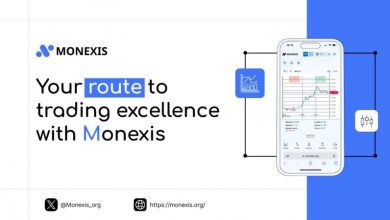Essential Skills Every Building Quantity Surveyor Must Have

In the evolving landscape of construction economics and infrastructure development, the role of a building quantity surveyor (QS) is pivotal to ensuring projects meet their financial and logistical benchmarks. Renowned firms such as Turner & Townsend, Gleeds, and Currie & Brown emphasize the necessity of possessing a multifaceted skill set for quantity surveyors to thrive in competitive markets.
The Royal Institution of Chartered Surveyors (RICS) continues to uphold stringent standards, underscoring essential competencies ranging from technical knowledge to interpersonal expertise. This article explores the core skills every building quantity surveyor must master to effectively contribute to cost management, contract administration, and resource scheduling in construction projects.
Comprehensive Understanding of Construction Materials and Methods
A foundational skill for any building quantity surveyor lies in their comprehensive grasp of construction materials and methods. This technical knowledge informs accurate construction estimating, quantification, and preparation of detailed bills of quantities, which underpin precise cost planning. QS professionals from global consultancies like Arcadis and Sweett Group often highlight how familiarity with emerging materials and innovative construction techniques enables more effective value engineering, reducing costs without compromising quality.
Understanding construction materials is crucial during feasibility studies and site monitoring to assess viability and ongoing compliance with design specifications. This expertise supports risk assessment activities, identifying potential challenges that might affect project budgeting and cost control. Such insights allow the quantity surveyor to propose alternate materials or methods during tender analysis, influencing construction procurement strategies that optimize financial outcomes.
Proficiency in Cost Estimation and Financial Management
Cost estimation and financial management form the backbone of a quantity surveyor’s responsibilities. Accurate construction estimating, combined with thorough cost planning, is vital for developing realistic project budgets and ensuring economic efficiency throughout the lifecycle of a project. Firms like Mott MacDonald and Cushman & Wakefield emphasize proficiency in managing dynamic budgetary constraints, a skill that directly impacts the management of final accounts and change order management.
Expertise in project budgeting involves strict cost control through site monitoring and progressive payment certification, ensuring disbursements follow contractual milestones. Quantity surveyors analyze variations via change order management, adjusting financial forecasts to reflect contract changes. Accurate quantification supports cash flow prediction, resource scheduling, and procurement planning, reinforcing financial discipline.
QS professionals often utilize advanced software and methodologies endorsed by RICS for tender analysis and value engineering to reconcile competing priorities between cost-efficiency and design intent. This holistic approach to construction economics enhances stakeholder confidence by delivering transparency and accountability during cost management processes.
Strong Contractual and Legal Knowledge
- Mastery of building contracts and legal frameworks is crucial for quantity surveyors to prevent disputes and uphold contractual integrity.
- Contract administration knowledge helps QS professionals navigate procurement, construction timelines, and payment terms.
- Industry leaders like JLL and AARMAN Group highlight that strong contractual knowledge supports risk assessment and mitigates legal issues.
- Ensures compliance with protocols in payment certification, final accounts, and claims from change order management.
- QS must be familiar with various contract types (JCT, NEC, bespoke agreements) to advise and protect stakeholders.
- Proficient contract administration facilitates efficient dispute resolution, minimizing project delays and financial risks.
- In feasibility studies, QS analyze legal implications of land use, statutory approvals, and building regulations.
- Ability to interpret legal frameworks ensures balanced decision-making in cost planning and procurement, aligning contracts with project goals.
Advanced Communication and Negotiation Abilities
Effective communication and negotiation skills are indispensable for quantity surveyors who frequently serve as liaisons between clients, contractors, consultants, and project teams. Their role within construction procurement demands clarity and persuasion to facilitate tender analysis, secure competitive bids, and negotiate terms that optimize project budgets without compromising quality.
Companies like Sweett Group and Gleeds highlight that adept negotiation extends to managing change order management processes and reconciling disputes over payment certification or final accounts. Successful QS professionals cultivate collaborative relationships and foster transparent dialogue, which enhances team cohesion and supports timely decision-making.
Effective Project Management and Organizational Skills
Project management and organizational capabilities empower quantity surveyors to synchronize various project elements, ensuring smooth execution within defined budgets and timelines. Effective resource scheduling is integral to coordinating procurement, construction phases, and payment processes aligned with contractual milestones.
Turner & Townsend and Currie & Brown underscore the importance of meticulous site monitoring to track progress and identify discrepancies early. By integrating cost control with real-time project management, quantity surveyors can preempt budget overruns and streamline workflows.
Efficient administration of building contracts, tender analysis, and change order management requires rigorous documentation and procedural adherence to maintain audit trails and contractual compliance. Familiarity with contemporary project management tools and software further advances a quantity surveyor’s ability to handle complex workflows.





